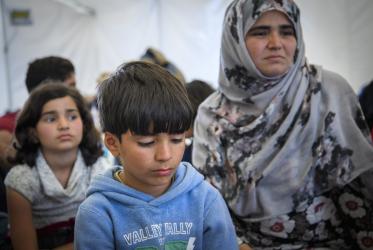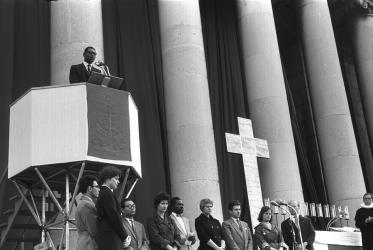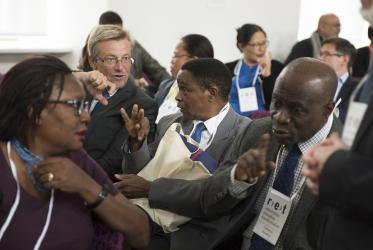Displaying 81 - 100 of 106
Consensus, collaboration emphasized at WCC meeting in Greece
11 October 2017
Building Capacity for Ministry with Migrant Churches in Europe
01 - 03 September 2017
Geneva, Switzerland
WCC Central Committee convenes in Trondheim, Norway
22 June 2016
Panel discussion fields ideas on European identity
26 April 2016
"I hit the ground running": Katalina Tahaafe-Williams
16 February 2016











